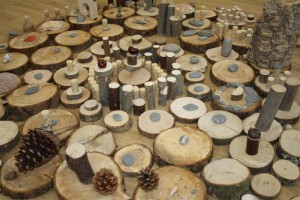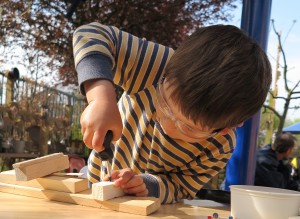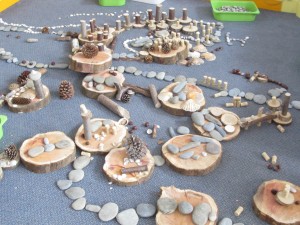CPD Training
All CPD courses are designed and delivered by Pete Moorhouse. CPD Training sessions are available as half day/ full day/ twilight as part of INSET and are also available on Saturdays for PVI settings. Trainings are delivered in-house or as webinars, and also available internationally. Webinars are delivered live and are interactive. They include supporting handouts, discussion prompts and detail instruction for additional practical sessions to further embed the training.
All training’s have clear aims with desired outcomes, and are designed to have a clear impact on practice. The need to address disadvantage is integral to all of the training sessions. CPD’s adhere to the guidelines in the Department of Education’s Standard for teachers’ professional development. Impact of CPD delivery is reviewed and evaluated.
NEWS: There is new in-depth online woodwork course is now available. A comprehensive course of 8 video tutorials and a set of 18 handouts. More info
NEWS: New: In-person woodwork CPD on June 20 London more info
The course has been brilliant – nothing short of inspirational with your in-depth knowledge of how children learn best and wonderful examples in practice. Can’t wait to embed within our nursery. Thank you.
Samhita Khan, UAE
PDF’s of CPD content below can be downloaded:
Introducing Woodwork in Early Years Education
The Characteristics of Effective Learning
See below for CPD content overview:
Encouraging Creativity in Early Years Education
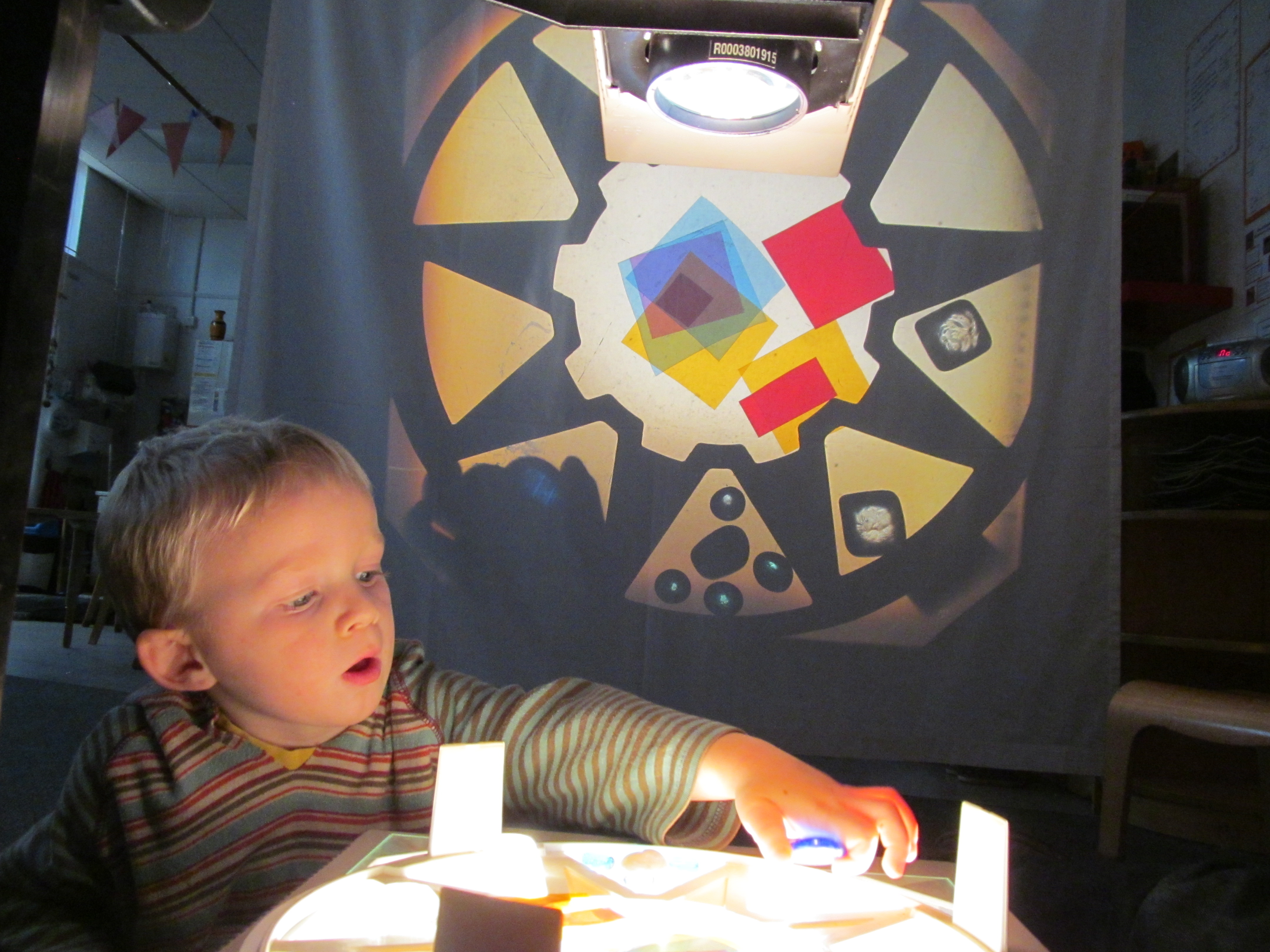
This course is designed to develop understanding of what creativity means and explore ways in which we can best encourage creativity. We will start by defining creativity and critical thinking and then looking at the different aspects of children’s thinking that contribute to the process of developing ideas.
I will emphasise the importance of creativity as a fundamental skill that not only impacts on all areas of learning but also impacts on young children’s long term outcomes to become resourceful and resilient adults. We will look at EYFS and see how creativity fits within the characteristics of effective learning and how it embraces all areas of learning. The training will explore the many factors that contribute to children’s creative and critical thinking, from the impact of the environment to working together with parents. We will look at the role of the teacher in extending their thinking by looking at sustained shared thinking practice and how best to interact with children during the creative process.
We will also consider ways in which we can monitor children’s creative progression especially in relation to their developing thinking skills.
From this course you will:
- Gain a thorough understanding of what creativity means
- Learn why creativity is so important in education and in life in general
- Look at the many elements that contribute to encouraging and nurturing young children’s creativity
- Investigate the role of the teacher in extending creative and critical thinking
- Look at the role of the environment and resources
- The importance of documentation and reflective learning practice
- Working together with parents to support children’s creative thinking
- Opportunity for practitioners to get creative exploring different materials
- View examples of inspiring provocations
- Think about ways of monitoring children’s creative progression
Learning from the Reggio Emilia Approach
The Reggio Emilia approach is a world renowned educational philosophy originating from the preschools of Reggio Emilia in Northern Italy and was inspired by Loris Malaguzzi following the Second World War. Central to the philosophy is the importance of creativity and developing the child as a confident independent thinker. The Reggio approach is a body of pedagogical thought and practice – the result of many years of commitment to young children and their families and pedagogy builds on many previous educators such as Froebel, Dewey and Vygotsky. There are several aspects of the Reggio early years school system that stand out. Central is a powerful image of the child – strong, competent, and naturally curious about the world and capable of constructing their own learning. Relationships are valued with children, teachers and parents seen as being equally important. There is much emphasis placed on developing children’s creativity and the importance of the environment to facilitate this.
From this course you will develop an understanding of:
- The teacher as co-learner, emergent curriculum, children with direction over their learning
- The 100 languages of children– the endless opportunities for creative expression
- The role of Atelieristas – artists in residence/ studio spaces
- The importance of the environment – physical space/resources as third teacher
- The value of high quality reflective documentation
- Parents as partners. How Reggio practitioners work together with parents
- Working together with the local community
- Long term project work
- Pete will share first-hand experience of visiting schools in Reggio Emilia
- Observe examples of practice and environments
Introducing Woodwork in Early Years Education
Woodwork is hugely popular and provides a rich source of enjoyment as well as learning. The impact is profound and long term. Deep levels of engagement and intense concentration are common and the children often remain involved in their explorations for extended periods. Woodworking allows children many opportunities including; expressing their imagination, problem solving and sustained perseverance with challenging tasks. The learning outcomes have been remarkable and encompass all areas of the EYFS.
This practical workshop will look at ways in which woodworking can be safely introduced in your early years settings. We will look at the theory and how woodwork meets many learning and development aspects of the EYFS. We will examine the historical context and look at examples from other countries that have been working successfully with wood for many years. There will be explanations of the most suitable tools for young children and instruction on how best to use them. We will look at the most suitable woods. Information on potential suppliers of wood/ tools will be provided. Explanations on how to set up a woodworking area. Suggestions for activities, open-ended explorations and longer term projects. There will be practical sessions for practitioners to explore the tools, gain confidence and share the experience of making creations in wood.
From this course you will:
- Understand the value and theory of woodwork.
- Learn about the historical context of woodwork
- Understand the potential of woodwork for creativity and critical thinking
- Learn how to introduce woodwork safely, implementing an effective risk assessment.
- Understand the most suitable tools for young children and how to use them.
- Be confident to develop a woodworking area.
- Know where to buy the most appropriate tools and materials
NEWS: There is also new in-depth online woodwork course is now available. A comprehensive course of 8 video tutorials and a set of 18 handouts. More info
Working with Intelligent Materials
This workshop looks at the value of using intelligent materials – objects that children can use in a multitude of different ways, exploring different possibilities, to express their imagination. Combining natural or recycled materials, the child is at the center of their learning as they use their imagination to create various arrangements/constructions/narratives as they combine the objects. Materials are explored in many ways, following the child’s line of enquiry but with the practitioner sharing their journey of discovery – researching and learning together.
The exploration of materials encourages open-ended discovery and a focus on process. Natural and recycled materials can be seen as intelligent materials offering many possibilities for exploration and associated learning. Creativity and curiosity underline children’s emergent thinking and development.
We will look at examples from Reggio Emilia which has had a long tradition of working with natural and recycled materials and gain insights from Frobel (gifts), Nicholson (loose parts) and Goldschmeid (Heuristic play). We will look at how placing and arranging meets many learning and development aspects of the EYFS. The workshop will look at ways in which intelligent materials can be incorporated and developed in early years settings. We will look at example of loose parts indoors and in the outdoor environment.
From this course you will learn to:
- Provide appropriate resources to encourage open ended exploration
- Prioritise children taking the lead role in their learning
- Learn about various pedagogies that support investigation with intelligent materials
- Gain ideas for where to resource materials
- Suggestions for open ended explorations and longer term projects
- Practical session for practitioners to explore a selection of materials, gain confidence and share the experience of making creations.
The Language and Dialogue of Photography
Photography is a powerful tool for communication and creative expression. It is an extremely versatile medium. It is visual but it often becomes more about language – as it has so much capacity to stimulate and open up dialogue by allowing children to express their thoughts and their way of seeing the world – encouraging children’s voice.
For the practitioner it gives a unique insight into the children’s interests, the way the child sees their environment, friends, learning etc. Children use cameras in creative ways – unrestricted by convention – being so direct and curious and the results can be profound with the images being the starting point for further exploration. The children’s use of cameras puts them at the center of their learning – they can use the camera to document their investigations – creating their own learning stories. The images provide a wonderful way to reflect on learning and help evaluate. Photography can support all areas of children’s research and exploration in this way and when children document their own work they are more engaged with the images and gain a deeper understanding of their own learning process.
We will look at the use of photography as a way of consulting with children and understand how photography can be used as a tool for self-evaluation. Photography can also be using to support story telling. Images can be taken to illustrate the story, stimulate conversation and provide a starting point. Children acting out a story can be photographed, again providing a way to revisit and reflect on the story. Photography can be seen to embrace all areas of the EYFS and characteristics of effective learning. I believe there should be a children’s camera in every classroom as an important resource with which children can support and construct their learning. There will be information about the practicalities, best cameras for children, reviewing images, storage, software and how to successfully introduce photography to young children. There will also be a practical activities so do bring a camera or smart phone if you can!
From this course you will:
- Learn how photography can be a versatile tool for children’s creative expression
- Discover the potential for photography to stimulate communication – children’s voice
- Learn how photography can support all areas of learning by children documenting their own work
- Using photography as a way of consulting with children.
- Understand how photography can be used as a tool for self-evaluation
- Learn about practicalities: best cameras for children, reviewing images, storage, and software.
- How to successfully introduce photography to young children
- Learn about image permissions
- Opportunity for practitioners to get creative with cameras
The Enabling Environment – The Third Teacher
The impact that the environment can have on learning, development and creativity is profound. We will look at the aspects of the environment that play a part in encouraging creativity and wellbeing. We will look at the influence of other pedagogies which have influenced current practice focusing on Reggio Emilia. In the Reggio Emilia approach they refer to the environment as the Third Teacher – showing the importance they place on creating the right environment for learning and growth and for children to construct their own learning. We will look at an in-depth environment audit – a resource that could be used to evaluate your current learning environment and plan for possible improvements. We will consider the many elements that contribute to creating an outstanding environment from aesthetics, access to intelligent materials, opportunities for inquiry based learning to environmental factors and sustainability. We will discover how the environment impacts on wellbeing and learning dispositions. The session will also encourage an approach whereby the outdoor environment is seen as equally important to the indoor environment in providing rich learning opportunities.
From this course you will:
- Develop an understanding of the importance of the environment for learning, development and well being
- Learn about the Reggio Emilia approach to the environment referred to as the Third Teacher
- Learn how the environment can support creativity and imagination
- How environments can facilitate and encourage communication
- Learn how the environment can support open ended enquiry based learning
- Look at ways that physical development can be enhanced
- Examples and case studies of inspiring indoor and outdoor environments
- Complete an in-depth environment audit
- Consulting with children – examples of children’s feedback and contributions to design ideas
Block Play
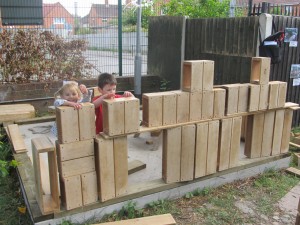
Block play is well established as a rich resource with which to develop children’s imaginative play, self-expression and creativity. Block play is open-ended which allow children a multitude of different ways to express their imagination. Block play incorporates many EYFS areas of Learning and Development and incorporates the Characteristic of Effective Learning so it really can be seen to be a resource that is central to curriculum. Blocks are a really popular resource for young children and they typically show high levels of engagement for extended periods of time.
The hands on experience of block play develops children’s mathematical and scientific thinking as they explore spatial relationships, balance and construction techniques. Large block play can encourage communication and collaborative work due to the scale of the work whereas smaller blocks can facilitate individual expression. Physical development is also developed, as children become more dexterous, exploring balance is various ways and using a range of movements. Blocks play can also provide opportunities to problem solve as children work out how to best use the block to express their ideas.
Blocks allow children to be independent and construct their own learning. Children become engineers as they construct bridges, architects as they design houses, artists and designers as they create sculptures and arrange patterns. Children create a vast range of constructions from making cars to boats and petrol stations…..the list is endless. Block play allows us amazing opportunities to observe children, giving us a real insight into their thinking processes. Working three dimensionally is another important aspect of play and an area which can unlock some children’s learning as they create structures and construct narratives.
The workshop will explore the origins of block play, looking at Frobel’s gifts and theory of “loose parts” (Nicholson). I will provide examples of blocks and refer to the wonderful contribution that Community Playthings have made to this important area of learning with their different series of blocks – unit blocks and hollow blocks and the new all-weather outlast blocks. The session will include a practical session.
From this course you will:
- Understand the theory and pedagogical influences
- Learn how block play can support open ended enquiry based learning
- Learn how block play can support creativity and imagination
- See how block play can support learning in relation to the EYFS curriculum
- See how block play can facilitate cooperation and encourage communication
Characteristics of Effective Learning
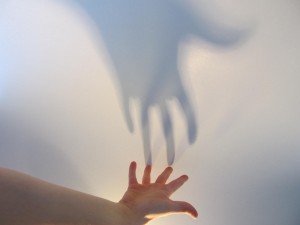
This course is designed to deepen practitioner knowledge of the Characteristics of Effective Learning, focusing on the process of how young children learn. The Characteristics of Effective learning are fundamental to every child in becoming a lifelong learner. This workshop aims to raise their profile, to gain insights in current thinking and to propose new ways in which we can monitor children’s progression in this vital area. We will look at Playing and Exploring: looking at how we support each child as a unique individual, how we encourage independence and how we encourage children to construct their own learning through play by following their own curiosity and lines of interest. Active Learning: We will think about dispositions for learning, motivation for learning and engagement – looking at the Leuven scales of involvement and well-being. In terms of persistence we will look at the work of Dweck in terms of growth/fixed mind-set. With Creating and Thinking Critically we will focus on creative and critical thinking as a process, I will emphasise the importance of creativity as a fundamental life skill that impacts on all areas of learning and also impacts on young children’s long term outcomes to become resourceful and resilient adults. The workshop will focus on the practitioner’s role in fostering creative and critical thinking skills. The workshop will consider ways in which we can monitor children’s progression of the characteristics especially in relation to their developing thinking skills. There will also be an opportunity to reflect upon values and how these relate to the Characteristic of Effective learning especially in terms of our view of children and their ability to construct their own learning.
From this course you will:
- Gain a deeper knowledge of the Characteristic of Effective Learning
- Explore theories of play based learning
- Engagement: Gain an understanding of the Leuven scales of involvement and wellbeing
- Gain a deeper understanding of what creativity means
- Learn why creativity is so important in education and in life in general
- Look at factors that contribute to encouraging and nurturing young children’s creativity
- Investigate the role of the teacher in extending creative and critical thinking
- The importance of documentation and reflective learning practice
- Gain insight into how to monitor progression
- Jump to:
- Woodwork
- Creativity
- Early Years Environment and Outdoor Learning
- Children's Photography
- Early Years General
Woodwork
-
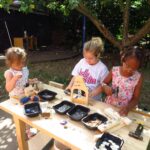
Una introducción a la carpintería en la Primera Infancia
Una introducción a la carpintería en la Primera Infancia Aprendizaje a través del hacer de Pete Moorhouse Pensando en el hacer… ¡Mientras los niños trabajan con madera, aprenden habilidades que los empoderarán para moldear su mundo! Pete Moorhouse ¡Carpintería...read more
View / Download -
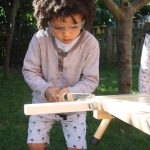
Woodwork Equipment
Resource of what tools you need and where to get them in the UK. Soon I will be adding a list of suppliers for the USA. If you find any broken links please let me know so I can keep...read more
View / Download -
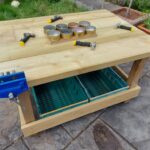
Make your own workbench!
Here’s some inspiration to make your own workbench! These are not very detailed instructions but at least give you an idea of how to make a solid sturdy workbench – and most importantly one that can withstand a bit of...read more
View / Download -
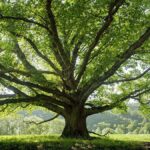
Woodwork and sustainability
In this resource I take a look at the role woodwork can play in achieving greater sustainability, and how we can utilise woodwork to enhance our understanding of the wider environment....read more
View / Download -
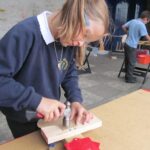
Woodwork progression within Primary Schools
A brief guide for teacher ( full content with CPD) This guide is aimed at schools that are planning to embed woodwork throughout their year groups. Building upon learning in previous years, it offers a logical progression of tools and...read more
View / Download -
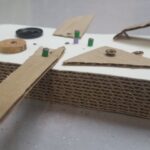
Woodwork – Soft start – Balsa wood and other materials
With young children – especially 3-4-(5) year olds it makes a big difference to experience woodwork by initially starting with a soft material. By starting with a soft material children can master skills and techniques easily and gain confidence. If...read more
View / Download -
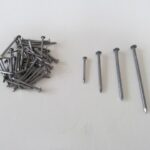
Woodwork – Nail and Screws
This resource provides all the information you need to know about the most suitable nails and screws for young children...read more
View / Download -

Physical anatomical development through woodwork
This handout looks at the general physical development and detailed anatomical development through woodwork: Woodwork provides many opportunities for physical development as children learn to handle tools safely and with increasing control. Woodwork helps children to: Develop hand-eye coordination...read more
View / Download -
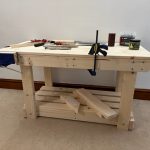
Workbenches – A look at all the options (UK)
Workbenches are essential items for woodwork. They must have a vice – that’s the whole point – to hold wood firm for sawing. They need to be as robust as possible so they do not wobble at all – this...read more
View / Download -

Learning and Development -mind map
I am sorry this resource is now only available with in-house or online CPD training. I have made many resources free for many years but with the impact of the pandemic on my work I now need to make some...read more
View / Download -
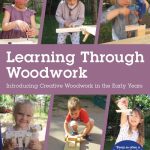
Book: Learning Through Woodwork by Pete Moorhouse
“Every so often a book is written that helps practitioners to develop their work in deep and far reaching ways. This is that sort of book.” Tina Bruce CBE This essential guide provides clear and comprehensive support for those...read more
View / Download -
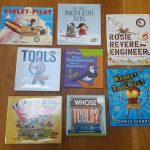
Woodwork booklist
Books for children: Fiction Klinting, Lars (2005) Harvey the Carpenter, US: Kingfisher Books. Portis, Antoinette (2009) Not a Stick, London: HarperCollins. Toni Buzzeo and Jim Datz. Whose Tools? Abrams Appleseed New York Sarah Garland Eddie’s Toolbox Frances Lincoln Children’s...read more
View / Download -
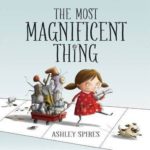
Girl Power (Tools) Booklist!
GIRL POWER (TOOLS) BOOKLIST! There is a link to download as a pdf at the bottom of this page. Children’s books with positive messages about girls making and inventing, especially using tools. This booklist especially for girls who like...read more
View / Download -
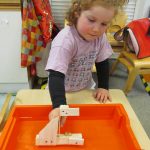
Woodwork and EYFS
I am sorry this resource is now only available with in-house or online CPD training. I have made many resources free for many years but with the impact of the pandemic on my work I now need to make some...read more
View / Download -
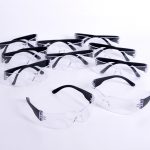
Woodwork safety glasses
An essential for safe woodwork eliminating the risk of eye injury...read more
View / Download -
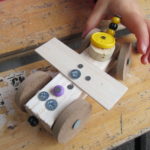
Gallery of creative woodwork
It’s hard not to get excited about children’s self expression through woodwork and it’s wonderful to see the breadth of explorations….but this comes with a warning – remember it’s not really about what children make – it’s the changes that...read more
View / Download -
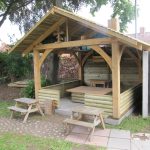
Gallery of example woodwork areas
Below is a selection of woodworking areas around the world. This will be added to over time. (started March 2018) Please share your woodwork set up – help inspire others – email me an image studio@petemoorhouse.co.uk Sunflower Nursery Fife Scotland...read more
View / Download -
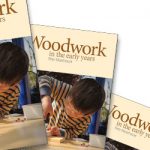
Woodwork booklet by Pete Moorhouse – Published by Community Playthings
A short introductory booklet about woodwork in Early Years education by Pete Moorhouse. (In German and English)...read more
View / Download -
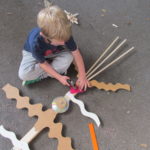
Gwaith Coed yn y Blynyddoedd Cynnar
Welsh booklet about woodwork in the Foundation Phase published by Mudiad Meithrin, funded by Welsh Government....read more
View / Download -
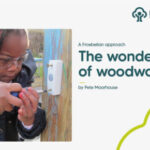
Froebel and woodwork
This pamphlet published by the Froebel Trust provides an Froebelian approach to woodwork. Woodwork brings together play and creativity, nurturing a young child’s self-confidence and wellbeing. This new pamphlet is aimed at all those who work with, care for and...read more
View / Download -
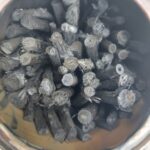
Charcoal as drawing material
This handout explains how to make your own charcoal. You could just char wood in an open fire but much better to make your own real charcoal! Wood, in the form of charcoal, has been used across the ages for a...read more
View / Download -

Example letter to parents
I am sorry this resource is now only available with in-house or online CPD training. I have made many resources free for many years but with the impact of the pandemic on my work I now need to make some...read more
View / Download -
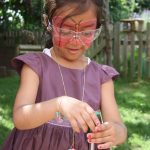
Woodwork Health and Safety Checklist
I am sorry this resource is now only available with in-house or online CPD training. I have made many resources free for many years but with the impact of the pandemic on my work I now need to make some...read more
View / Download -
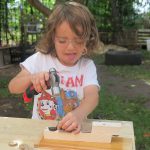
Top 20 woodwork tips for early years
I am sorry this resource is now only available with in-house or online CPD training. I have made many resources free for many years but with the impact of the pandemic on my work I now need to make some...read more
View / Download -
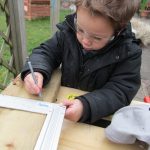
Woodwork and mathematical thinking
I am sorry this resource is now only available with in-house or online CPD training. I have made many resources free for many years but with the impact of the pandemic on my work I now need to make some...read more
View / Download -
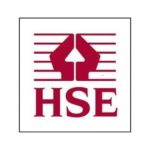
Health , Safety and Risk guidance
I am sorry this resource is now only available with in-house or online CPD training. I have made many resources free for many years but with the impact of the pandemic on my work I now need to make some...read more
View / Download -
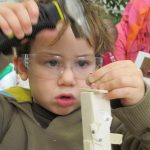
Woodwork example risk assessment form
I am sorry this resource is now only available with in-house or online CPD training. I have made many resources free for many years but with the impact of the pandemic on my work I now need to make some...read more
View / Download -
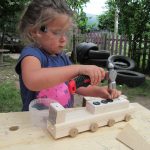
Woodwork – Learning outcomes
I am sorry this resource is now only available with in-house or online CPD training. I have made many resources free for many years but with the impact of the pandemic on my work I now need to make some...read more
View / Download
Creativity
-
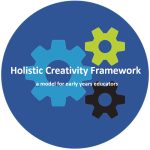
Holistic Creativity Framework
The Holistic Creativity Framework has three core elements. 1. What capacities enable a child’s creativity to flourish 2. The optimal ways in which we can nurture and encourage their creativity 3. How we can best observe and support creative development...read more
View / Download -
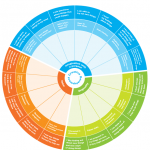
Creativity Wheel
The Creativity Wheel is a truly wonderful resource to help evaluate creativity from Creative Partnerships developed by Caroline Redmond in 2004 The Creativity Wheel is a well established resource that has now been used by many schools to assist in...read more
View / Download -
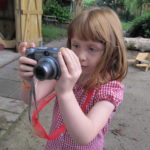
Creativity at Home – Parent guide by Pete Moorhouse
A resource for parents/ carers of young children. (3-7 ish) Download resource at the bottom of this page! I very much appreciate that the current situation has created new challenges for all of us. I’m sure you will have all...read more
View / Download -
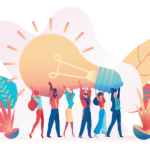
Creativity – Creativity from the outset by Migros/HKB
This is a great resource all about how best to support children’s creativity, addressing many of the issues faced by parents....read more
View / Download -
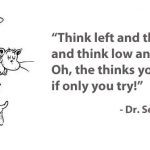
Creativity Quotations
Creativity Quotations – Inspiring quotes Compiled by Pete Moorhouse irresistible-learning.co.uk Share this resource – help inspire creativity! Print quotes and place them around your home or workplace! To contribute more quotes to this resource email: studio@petemoorhouse.co.uk ...read more
View / Download -
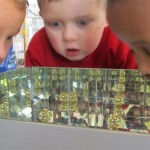
Thinking Skills in the early Years NFER review
Useful resource from NFER about thinking skills...read more
View / Download -

Creative Thinking and Learning Project
This is a wonderful example of an in-depth project about developing creativity and evaluating it’s impact in Sheringham Nursery School, by the wonderful Anni McTavish, Creative Arts Consultant. Written by Anni McTavish with a foreword by Nancy Stewart Creativity is...read more
View / Download -
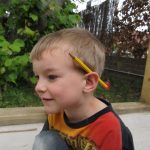
Thinking Skills in the Early Years
Resource from Stranmillis University College, Belfast...read more
View / Download
Early Years Environment and Outdoor Learning
-
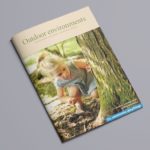
‘Outdoor Environments’ booklet – free
Outdoor environments – Developing outdoor learning spaces by Pete Moorhouse “Embracing outdoor learning will contribute greatly to giving children the best start in life – benefiting their social, emotional, physical and cognitive development.” This booklet provides inspiration and tips for...read more
View / Download -
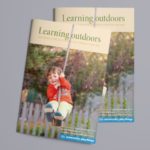
‘Learning Outdoors’ booklet – free
Learning Outdoors – Building a solid foundation through nature by Pete Moorhouse with contributions from Jan White, Kathryn Solly and Jon Cree This booklet details the pedagogy behind outdoor learning and its importance for every setting. Published 2019 by Community...read more
View / Download -
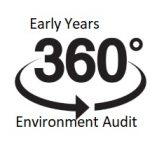
Early Years 360° Environment Audit – free
Early Years 360 Environment Audit – Comprehensive environment audit form This enabling environment audit is designed to provide a framework with which to evaluate the current environment from all perspectives and focus attention on areas that require improvement. Current research...read more
View / Download
Children's Photography
-
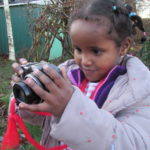
All About Children’s Photography
EYFS best practice article all about the use of cameras in Early Years education...read more
View / Download -

Children’s Photography – Capture the moment
An article I wrote for Small Talk – giving an overview of the learning and development benefits of children using cameras and also looking at the practicalities...read more
View / Download -
Children’s Photography
Equipment (If you have any other good suggestions please share and I’ll pass on the info to other teachers) There are so many options available and there are pros and cons to all. I would advise prioritising something that takes...read more
View / Download
Early Years General
-

12 Features of Play by Tina Bruce
12 features of play by Tina Bruce Play cannot be pinned down into a neat, measurable definition. Different philosophies of early childhood education see play through different lenses and make decisions about whether play is important – or if it...read more
View / Download -
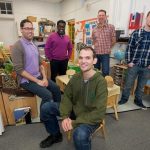
Men in Early Years – some thoughts…..
Men in Early Years Education Through my work delivering training and presentations I get to participate in a number of early years conferences. I am always taken aback by the lack of men – sometimes none at a conference...read more
View / Download

